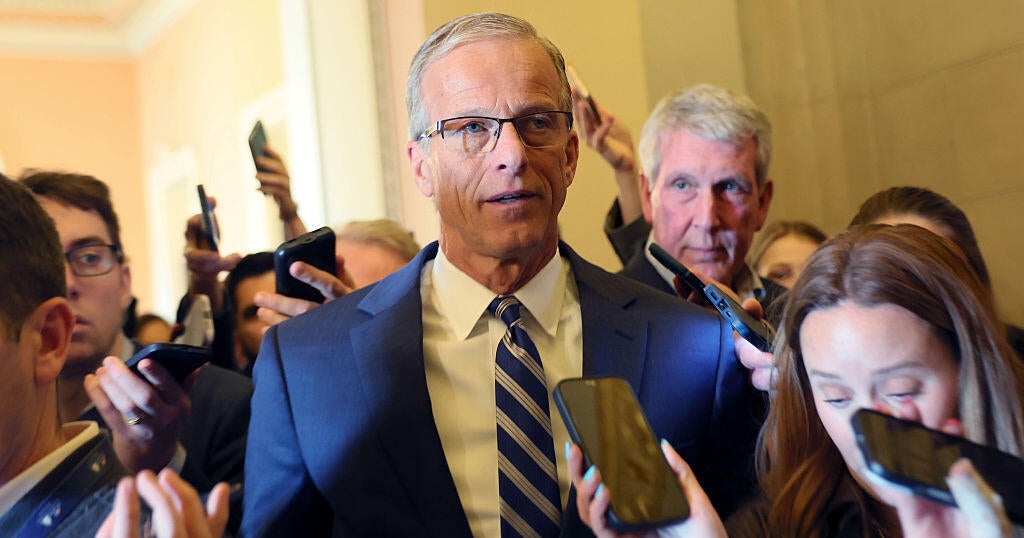Sen. Kyrsten Sinema says Senate immigration proposal "ends the practice of catch and release"
Washington — Sen. Kyrsten Sinema said on Sunday that the forthcoming border security deal that Senate negotiators have been working on for months ends the practice of catch and release, among other key provisions, providing a "disincentive for individuals to come to this country."
"We'll no longer have people just entering the country and maybe going to court in the next seven or 10 years," Sinema said Sunday on "Face the Nation." "Instead, we'll make swift justice — folks who do qualify for asylum will be on a rapid path, six months or less, to start a new life in America, and those who do not qualify will quickly be returned to their home countries."
The Arizona independent explained how the agreement would end the policy of catch and release, the practice of detaining and then releasing migrants with the promise of a future court date, while outlining the new pathways for seeking asylum.
Under the agreement, expected to be released later on Sunday, Sinema explained that individuals may go into short-term detention, where they would be taken into custody and be interviewed to determine whether they meet the asylum standard. For those who don't meet the standard, which she said is most migrants, they would be returned to their home country under the proposal. And for families, they would be supervised over the course of three months, while being required to show more proof early on about whether they qualify for asylum.
Sinema also explained that under the agreement, the executive branch would be required to "shut down the border" if there are 5,000 people asking to enter the country and seeking asylum on a single day, while permitting the president to take action if that number reaches 4,000 a day.
"The reason we're doing that is because we want to be able to shut down the system when it gets overloaded," Sinema said. "So we're requiring it, not permitting it. And that's a key difference from existing immigration law."
Sinema explained that the lead Senate appropriators are in the "final stages" of putting the bill together Sunday, as the text of the deal is expected by day's end. Sinema has been working with Sens. Chris Murphy and James Lankford for months on the agreement, which is designed to reduce illegal crossings along the southern border after unprecedented levels of migration in recent months. The deal is part of a larger national security supplemental requested by the White House that includes billions of dollars for Ukraine, Israel, Taiwan and other national security priorities.
But standing in the way of the deal, especially in the House, is Republican opposition, which threatened to derail the effort this week amid pushback from former President Donald Trump.
Then, Speaker Mike Johnson announced on Saturday that the House would vote on a standalone bill on aid to Israel, setting a showdown between the two chambers, as the Senate is eyeing an initial vote on the supplemental funding package this week.
Nevertheless, Sinema said she "feels confident" that if the Senate bill passes the upper chamber, House Republicans will have a chance to read and understand the policy and will be faced with a choice – "do you want to secure the border?"
"For five months my Republican colleagues have demanded, and I think rightfully so, that we address this border crisis as part of a national security package — I agree," Sinema said. "The crisis on our border is a national security threat. And this week, the Senate will begin to take action on a large national security package that includes a realistic, pragmatic and the strongest solution to our border crisis in my lifetime."




